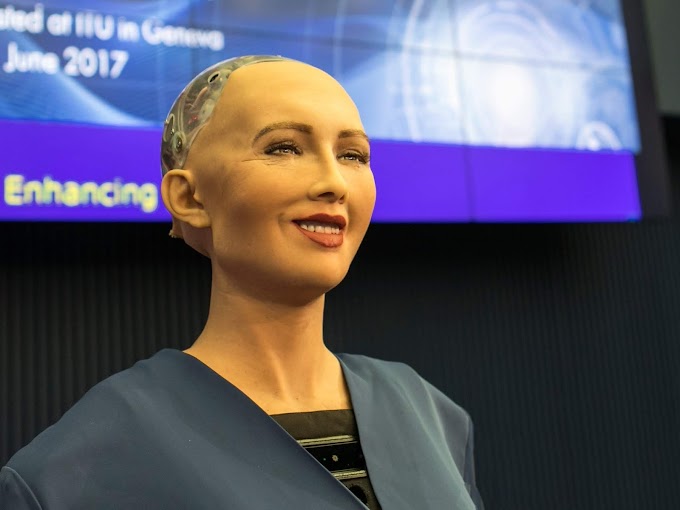The United States military has a long tradition of using new
technologies. The Wright brothers built planes for the U.S. army. The US Navy
commissioned the first motorized submarine. One of the most influential
scientific endeavors in history, the Manhattan project, was a military
operation. Military development of new equipment continues to this day.
Humanity has lost the military applications found for new
technologies. Advances in carpentry, Metalworking and electronics have been
adapted for military purposes. Tools originally designed for hunting were
thrown into military use. History has shown that the army with the best
equipment has a decisive advantage over its rivals. While this is not a
guarantee of victory, better weapons can have a huge impact on the outcome of
the conflict.
The Agency for advanced defense research (originally simply
ARPA) appeared in 1958 as a reaction to the launch of the satellite. DARPA
works within the Ministry of defense, but is also separated from the branches '
R & d departments. DARPA, still responding to the Secretary of defense,
pursued areas of interest that were more extreme than individual
branches-that's the "advanced" part of the title. Some of DARPA's
achievements have played an important role in helping to incorporate stealth
technology and the Internet's predecessor, ARPANET
Research in the field of artificial intelligence occurred in
the early 1960s, two organizations that invest in this early work were DARPA
and the Office of naval research. The release of artificial intelligence
permeates our culture from voice recognition systems to banking software to
detect credit card fraud.
Some modern uses of artificial intelligence by the military
include systems that perform non-combat functions. DART, a planning tool, used
A. I. And was used in Desert Storm and Desert Shield. The training simulator is
being developed to include the A. I. US air force working with the private
industry to develop systems for faster collection and study of information. The
aim is to improve the response and decision-making time for more effective
military action. Like many of AI's military applications, it includes
information management and decision making.
Some expressed concern about the role of AI in hostilities.
The use of these systems for support and management is one thing, and the
presence of non-human combatants is another. Professor Noel Sharkey of the
University of Sheffield discusses the potential problems of mechanical
warriors. He said robots cannot perform two basic tasks of war. One is the
ability to distinguish between friend and foe, which is sometimes difficult for
people to make themselves during modern warfare. Another tenant,
proportionality. It is a decision on the amount of force that is considered
reasonable in a given situation. Another problem is that people can be moved
from a decision-making position to a position of monitoring decisions made by
computers.
The development of machines capable of imitating human
thought, surpassing it, or even becoming self-aware is a well-studied
prerequisite in science fiction. In today's technological landscape, the
emergence of artificial intelligence-AI-could be one of humanity's greatest
achievements, but as the renowned physicist Stephen Hawking warned, "it
could also be the last if we don't learn to avoid risks."
Sophisticated technologies continue to be introduced into
modern society, from digital personal assistants and intelligent search
algorithms in Google, to experimental self-driving cars. Artificial
intelligence is defined as a computer or machine capable of performing
"logical deduction and inference" and "making decisions based on
past experience or insufficient or conflicting information. “Current technical
levels have already passed through frightening ethical dilemmas, such as
whether military drones or other robotic systems should be designed to use
deadly force against targets without direct human intervention. Currently,
programmed machines can respond with greater speed and accuracy than human
operators, but are still capable of gross error without human prejudice and
intuition to guide decision-making. These problems will be amplified if AI is
embedded in such systems, presenting independent films that can be completely
unpredictable or directly contradict human intentions.
The introduction of artificial intelligence will radically
change the concept of human work. Since the industrial age, any technology has
inevitably made many jobs obsolete, creating new opportunities in new areas. AI
offers a future in which machines perform tasks in our sustainable, allowing
people to pursue leisure life. Economist John Maynard Keynes went so far - back
in 1930-that he predicted a 15-hour work week by 2030. At the current level of
the population, all aspects of society would require radical renewal, both
culturally and economically, if automation led to such a drastic change in the
way we spend our days.
One of the major threats to artificial intelligence is
whether it uses already enhanced abilities to create machines of even greater cognitive
power. The advanced generation and can work as highly on man as we do on
animals, and it is even possible to develop beyond the human ability to
understand him. As a result -- referred to as the singularity by Dr. Vernor
Vinge for the NASA Lewis Research Center VISION-21 Symposium in 1993--the rules
of life, as we know, will change forever, as there is no way to predict whether
AI will decide to coexist or be hostile to humanity.
Hawking stresses that any serious discussion of
artificial intelligence must take into consideration the potential threats and
how to manage them, and calls for more critical, institutional research as
increasing corporate resources are devoted to realizing breakthroughs in
creating artificial intelligence. Vinge postulates that AI can be tightly
regulated by rules that effectively hard-wire benevolent behavior into
autonomous robots, as imagined by science fiction writer Isaac Asimov's Three
Laws of Robotics. Vinge also warns that natural human competition will likely
lead to the development of unrestricted models of AI, so even such safeguards
may not be enough to control the Singularity if it occurs.










0 Comments